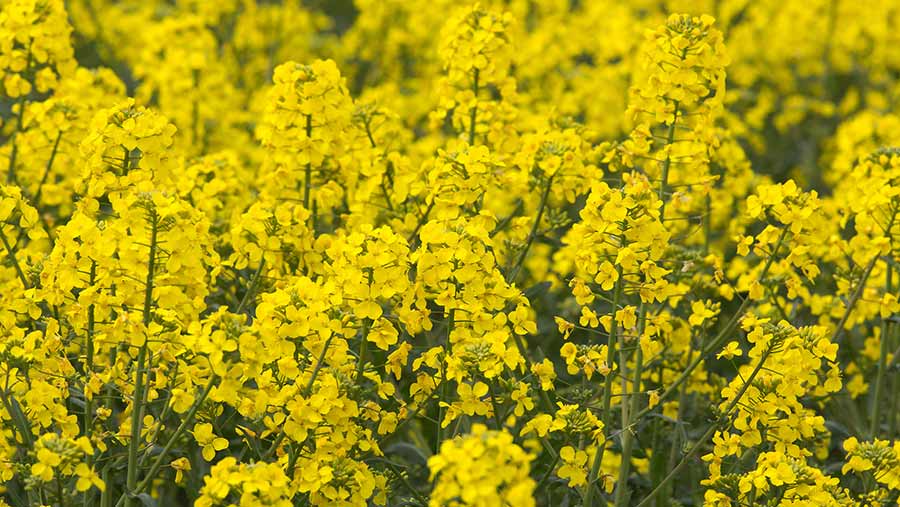Trial shows cultural control cuts flea beetle risk
 © Tim Scrivener
© Tim Scrivener Companion cropping in conjunction with biological and insecticide seed treatments could provide oilseed rape growers with a workable solution for flea beetle control, a recent trial shows.
The investigation, run by agronomy group Agrovista in Draughton, Northamptonshire, aims to identify effective cultural control options that allow farmers to successfully grow oilseed rape in the UK.
Following the loss of neonicotinoids in oilseed rape, growers have been left with a limited and unreliable range of post-emergence insecticides to establish a healthy crop.
See also: Sheep grazing eliminates need for rapeseed growth regulators
The group’s farming systems research and development advisor Niall Atkinson explains how the purpose of the trial isn’t to find one quick-fix solution, but to show how a combination of factors can work together to get rapeseed established successfully.
The trial
The trial consists of 18 treatment plots of the Phoenix Clearfield variety at 50 seeds/sq m, which was drilled on 29 August.
“We drilled the majority of plots using a HE-VA Evolution low-disturbance soil loosener complete with seeder unit, with the remaining direct drilled using a Weaving GD drill,” says Mr Atkinson.
Half the plots were grown in a long winter wheat stubble, and the other half in a standard stubble length, with all straw chopped.
A range of seed treatment applications were applied, including a biological, cyantraniliprole-based insecticide and a fungicide.
“Supporting growth with targeted seed treatments really does seem the way to go, protecting and boosting the oilseed rape seedling from the beginning, when it is most vulnerable to damage,” he adds.
Companion crops
Treatments were then combined with different companion plants of berseem clover and buckwheat.
“The roots of the berseem clover help the root exploration potential of the oilseed rape, allowing it to get going quickly and grow away from impending flea beetle damage. It also improves overall soil health and soaks up excess nitrogen, reducing nitrate leeching,” explains Mr Atkinson.
For many growers, flea beetle pressure makes growing oilseed rape near impossible, but the agronomy firm aims to prove that all is not lost and options remain available to make it a financially viable crop.
